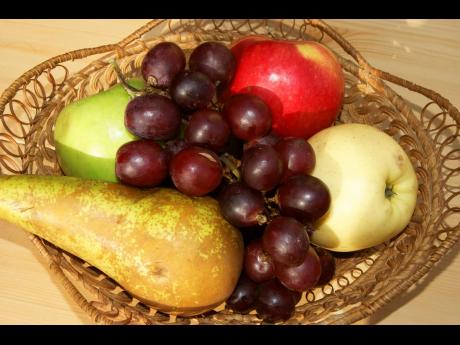Elizabeth Morgan | WTO rules, removing GCT, and Jamaica’s agriculture
In my article last week, I dealt with the outcome of the 13th Ministerial Conference (MC13) of the World Trade Organization (WTO). In that article, I mentioned that agriculture was one of the items of interest to Jamaica and other CARICOM members. They believed that reform should address the imbalances in the WTO agreement on agriculture, especially trade-distorting domestic subsidy support, and should safeguard the development flexibilities that enhance food security and retain bound tariffs.
In my article of November 8, 2023, I pointed out that Jamaica would be undergoing its fifth WTO Trade Policy Review this year.
In his budget presentation last week, Finance Minister Dr Nigel Clarke announced that Jamaica would be removing the General Consumption Tax (GCT) on imported raw foodstuff in order to be compliant with WTO rules. The minister, I would say, misspoke when he mentioned ‘blacklisting’. The WTO does not blacklist members; that’s the European Union (EU) for harmful tax measures. A non-compliant member can be challenged in the WTO dispute settlement system, which does still function, in spite of the problems it has faced and the efforts to reform it.
NATIONAL TREATMENT
What the finance ministry is doing here is applying the WTO principle on national treatment, which, for goods, is in Article 3 of the General Agreement on Tariffs and Trade. National treatment is one of the foundation principles of the WTO. It states that the same treatment must be applied to locally produced and imported products in the customs territory.
It seems that Jamaica was applying GCT on imported raw foodstuff, mainly fruits, vegetables, fish and meats, and not on local products. The Government would want to take this measure to remove any risk of this anomaly being raised by trading partners exporting these products to Jamaica. For example, Jamaica imports apples and pears from the United States, Canada, Chile, Peru and Argentina.
It should be noted that GCT is not the only tax charged on imported fresh fruits and vegetables, but also import duties, which on average is about 40 per cent, and other duties and charges which can vary in amounts. Jamaica works with the rates it has agreed in CARICOM and in the WTO, which provide policy space to protect local production. This is where the bound rate is relevant.
The GCT will be removed, but the other import duties remain. Fruits, such as grapes, plums, peaches, apricots, cherries, are also affected by the fluctuations in the US dollar rates. I am not seeing the prices of these products being reduced by any significant amounts with the removal of the GCT. In recent months, a tray of grapes in the supermarket has moved from about J$500 to J$900. So for many of us, these are luxury items. Recall that these are not grown in Jamaica.
Some fruits grown in Jamaica have very high import duties and other duties and charges. A container of local strawberries costs about J$1,000, while a container of imported strawberries costs about J$1,600. I do not see the price reducing significantly on the imported and thus I would prefer local strawberries.
Imported fish and meats from outside of CARICOM also attract significant import duties. All imports of fish and meats must also meet the sanitary and phytosanitary requirements for entry to the Jamaican market. So, removing the GCT does not mean free access into the Jamaican market.
WTO OPERATIONS
I have heard interesting comments in the media about the WTO and whether small, developing countries should apply the rules. Some commentators seem to hold the view that it is not necessary for small members to comply, as developed members don’t.
There are flexibilities built into the agreements for developing countries. This is what special and differential treatment, the development flexibilities, are about. The Work Programme on Small Economies is also about highlighting the concerns of this category of members.
There are imbalances in the WTO. However, countries cannot profess to support the rules-based multilateral trading system and then feel that they do not have to apply the rules. Dispute settlement action can be taken by all members, developed or developing, and Jamaica trades with all.
The WTO director general coming from Nigeria also does not mean that she determines rule-making and can singlehandedly steer the organisation towards developing countries and their development needs. At the end of the day, it is not the WTO secretariat staff who make WTO rules. It is the members. It is always emphasised that the WTO is a members-driven organisation.
JAMAICA’S AGRICULTURAL PRODUCTION
In agriculture in Jamaica, the issue for me is the low level of production. I drive in some rural areas and I am searching hard to see cultivation. The country, to promote food security, is not producing enough fruits, vegetables, fish and meats. Local oranges, for example, are quite expensive. One orange is selling for J$200 because there is a shortage due to diseases.
I am even noting now that bananas can be in short supply. There are not enough local cabbages, cauliflower, carrots, etc, and the quality of local produce is marginal.
As for fish and meats, the local products are very expensive due to low stocks. Local goat meat is about J$1,700 per pound and oxtail is about J$1,600 in the butcher shop.
Farmers are complaining about lack of financing, cost of inputs, unavailability of water for irrigation, lack of land, poor farm roads, impact of climate change (excess heat, severe droughts and floods), soil exhaustion, low fish stocks in local waters, and praedial larceny.
The problems in agriculture, in my view, are far bigger than removing the GCT on imported raw foodstuffs.
We need to hear more about the growth in local agricultural production.
Can Jamaica possibly achieve CARICOM’s food production goal of ‘25 by 2025’?
Elizabeth Morgan is a specialist in international trade policy and international politics. Email feedback to columns@gleanerjm.com

